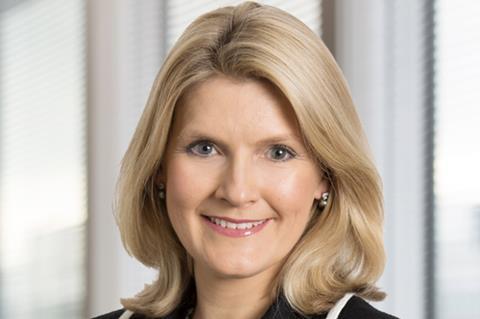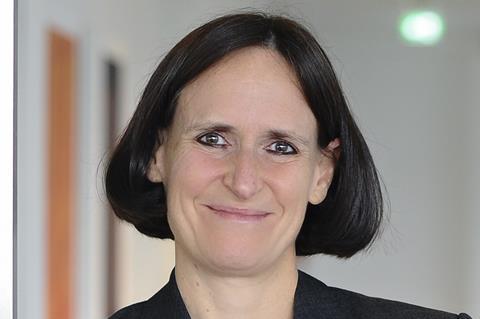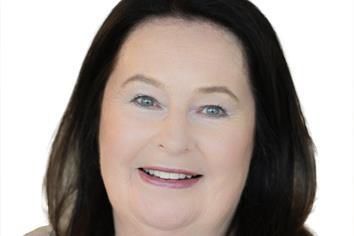Pamela Thompson, chair of Eversheds Sutherland (International) LLP
The pandemic has impacted us all, as we try to balance our responsibilities - inside and outside work. Given my passion for achieving gender equality it is particularly important to me that at Eversheds Sutherland we actively tried to minimise any negative impact of the pandemic on the careers and lives of our female employees and partners.

Cultural change is about long term sustained commitment, and it was important we continued implementing our existing diversity and inclusion action plan when circumstances became more challenging, for example, inclusive hiring, roll-out of our Inclusive Leadership programme, piloting alternative methods of work allocation, and increasing the focus on intersectionality.
In relation to parenting, we extended flexibility around working hours, patterns and days to help colleagues manage additional demands and pressures. We also extended our dependent’s policy to offer five days of paid leave for emergency care, and offered one extra day’s holiday allowance for every four taken for caring. We launched a domestic abuse policy and signposted resources and had a strong focus on wellbeing for all. As the pandemic slows, we will carefully monitor the impact on gender equality and take further actions as necessary.
Penny Angell, managing partner, Hogan Lovells UK
We put a range of initiatives in place at Hogan Lovells to keep us talking, provide flexibility over how we work, and help us look after our mental and physical wellbeing. Whilst we support all of our people, we have been particularly mindful of the disproportionate burden of childcare and home schooling that often falls on women.

We hosted working family forums to share tips for juggling care and work responsibilities; promoted flexible working patterns to help working parents needing to provide home school supervision; and created a dedicated intranet hub with wellbeing and family support resources, including tools for mental and physical health, and access to our trained Mental Health First Aiders. Core to our support offering are remote access to our onsite counsellor, private GP services, Employee Assistance Programme and virtual gym classes, in addition to firm-funded emergency childcare sessions.
We introduced a new ‘COVID-19 Leave for Dependents Policy’, providing up to five days of paid leave for those needing to support dependents during the pandemic. In place for the duration of 2021, this is in addition to our existing time off for dependents and emergencies policy.
We also analysed our utilisation (we operate a chargeable hours model) for all lawyers, and financial metrics for potential partner candidates with a specific gender lens applied, to ensure the impact of 2020 was not disproportionate on our women.
Kathleen Russ, senior partner, Travers Smith
Statistics show that one in four women is a victim of domestic abuse. As a firm, we are aware of this critical issue and over the last 10 years, our pro bono team has worked to support the victims of domestic abuse. In this time, we have been supporting the National Centre for Domestic Violence (NCDV) and in 2019 established our own Domestic Violence Advocacy Unit to work alongside the NCDV in providing advocacy services for victims of domestic violence referred to us by them.

There has been a significant increase in domestic violence incidents against women reported in the UK during the ongoing Covid-19 pandemic. I am, therefore, proud that at Travers Smith we have taken an important step to introduce a domestic abuse policy, which is designed to support our people internally in the event that they experience this kind of abuse.
We have worked closely with domestic abuse charity SafeLives on the development of this policy and their guidance has been paramount to ensuring that we are not only supporting those employees who have experienced, or are currently experiencing domestic abuse, but are also providing training and resources to line managers and our mental health first aiders to facilitate a better understanding of how they can support those at the firm that need it.
I am delighted that the firm has put this policy, and the associated support network, in place and would encourage other firms to do the same.
Penelope Warne, senior partner, CMS CMNO LLP
Initially when the Covid crisis struck, the firm’s board (45% of which is female) held weekly board discussions about the best support and communicated the output to the firm weekly.

This support included; ensuring home working worked for all, flexibility for employees who were challenged by the reality of lockdown, no pay reductions and an increased focus on wellbeing initiatives. At the same time, CMS’ women’s network organised ‘in conversation with’ sessions with me and Stephen Millar, managing partner, so that the firm’s women could hear directly from their leaders and ask the questions which were important to them.
More recently, in the third lockdown and with the pressure of home schooling, after extensive consultation with the firm’s Families and Carers Networks, Mental Health Network and HR team, the firm issued further help, including increased support for those with family responsibilities, wellbeing support, a policy and awareness raising on domestic abuse and most importantly a renewed pledge of fairness and flexibility for those who were unable to work as normal due to the latest lockdown.
How has Covid-19 impacted you?
The Law Society would like to know how the pandemic has affected you. To take part in a short poll, launched on International Women’s Day, click here.































No comments yet